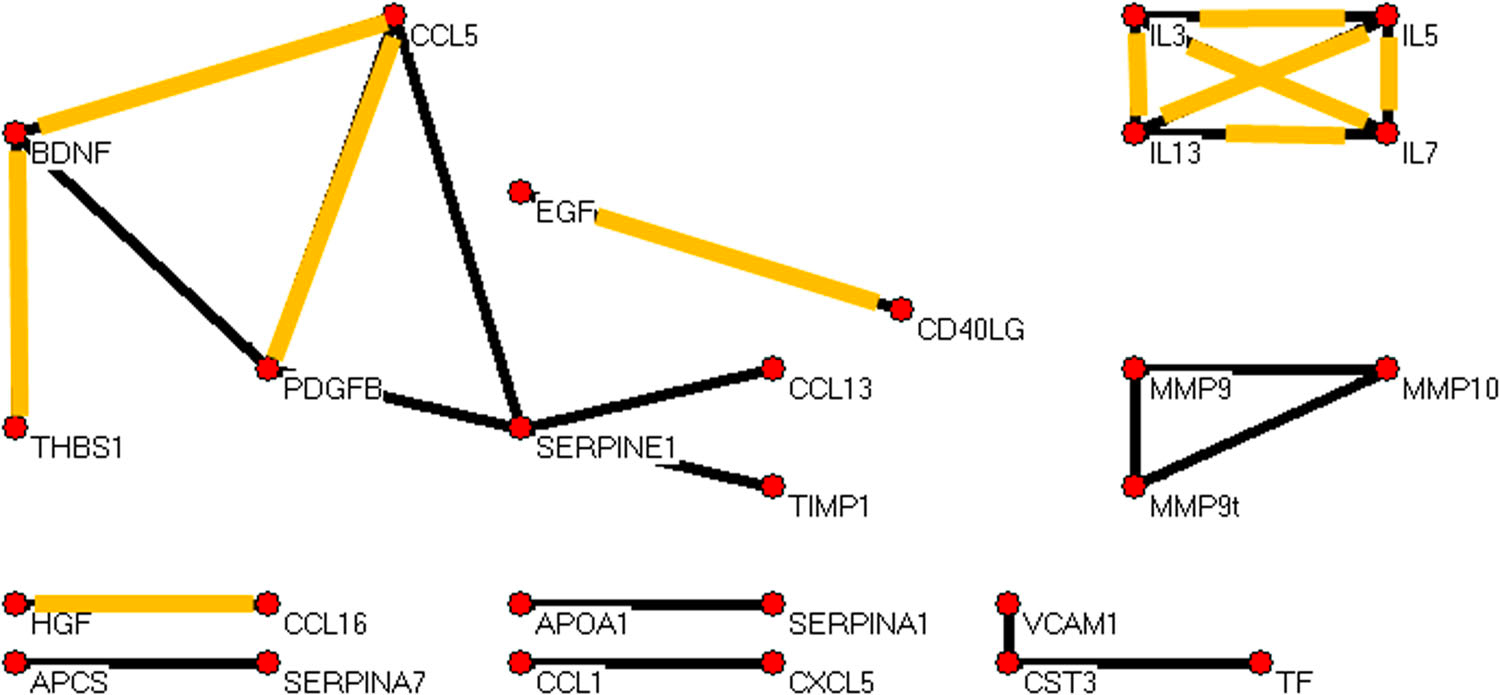Clark D. Jeffries, Diana O. Perkins, Margot Fournier, Kim Q. Do, Michel Cuenod, Ines Khadimallah, Enrico Domenici, Jean Addington, Carrie E. Bearden, Kristin S. Cadenhead, Tyrone D. Cannon, Barbara A. Cornblatt, Daniel H. Mathalon, Thomas H. McGlashan, Larry J. Seidman, Ming Tsuang, Elaine F. Walker, and Scott W. Woods
Schizophrenia patients often present with changes in circulating immune proteins, which can cross the blood-brain barrier (BBB) and directly affect brain function. Many studies have hypothesized that psychosis is related to a dysregulation in the peripheral immune system that leads to abnormal signaling in the BBB. Patients defined as high-risk are 100 times more likely to develop a psychotic disorder within 2 years of diagnosis, and being able to predict progression to psychosis can be a useful tool for early intervention and improve clinical outcomes.
This study, unlike previous studies, examined immune proteins not as separate entities but as a part of specific protein networks. Blood samples were taken from subjects in the North American Prodrome Longitudinal Study (NAPLS2) at baseline, and each subject was followed for up to two years. The plasma samples were measured using Myriad RBM’s Human DiscoveryMAP assay.
Several analytes were highly correlated among all groups examined: unaffected (not affected by schizophrenia), nonconverter (schizophrenia patients who did not progress to psychosis within 2 years), and converter (schizophrenia patients who progresses to psychosis within 2 years). In the figure below, 27 analytes were strongly correlated with converters (the correlations in yellow were observed in all 3 groups). There were several SERPINE1 correlations, suggesting changes in the regulation of SERPINE1 (plasminogen activator inhibitor-1) and TIMP1 (tissue inhibitor of metalloproteinases), which play major roles in the degradation of fibrin, inhibition of coagulation, and anti-inflammatory pathways. Interestingly, TIMP is completely absent in unaffected and nonconverter groups.
For converters, SERPINE1 did not correlate with MMPs, but instead correlated with TIMP1. Connective tissue growth factor (CTGF) is well documented to promote expression of SERPINE1 and TIMP1, and while CTGF was not detected in the majority of the subjects from all 3 groups, this study strongly suggests the importance of CTGF in progression towards psychosis. The authors concluded that CTGF inhibitors may be attractive treatment options in preventing schizophrenia patients at high risk from converting to psychosis.


